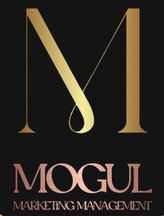
How to Measure the Success of Your Marketing Events
10/6/20242 min read


Understanding Event Success Measurement
When it comes to marketing events, gauging their success can often feel like navigating a maze. There are so many metrics to consider, and without a clear plan, it's easy to get lost. The key is to define what success looks like for you before the event even begins. This will not only help you measure results accurately but will also steer your strategic planning moving forward.
Defining Your Goals
First things first, you need to establish the goals and objectives of your event. Are you looking to generate leads, boost brand awareness, or foster customer loyalty? By setting specific, measurable goals, you can create a framework for evaluating your event's effectiveness. For instance, if your goal is to generate leads, you might track the number of sign-ups or contacts you gather during the event. Clear objectives help in aligning your measurement strategies with the intended outcomes.
Key Metrics to Track
With your goals in hand, it's time to dive into the metrics that matter. Here are a few essential ones to consider:
Attendance Numbers: The number of registrants vs. actual attendees can give you insight into your promotional effectiveness.
Engagement Levels: How involved was your audience? Monitor social media mentions, session participation, and interactions during the event.
ROI (Return on Investment): Calculate the total cost of the event against the revenue generated or leads produced to assess financial effectiveness.
Post-Event Surveys: Collect feedback through surveys to gauge attendee satisfaction, which can also provide qualitative data on what worked and what didn’t.
Keep in mind; tracking these metrics doesn’t just help after the event. Gathering data during the event can help you pivot in real-time if needed!
Analyzing the Data
After your event concludes, it’s time for the real work: analyzing the data you've gathered. This step involves reviewing the metrics against your initial goals. Did you meet your attendance objectives? How did engagement levels compare with past events? Most importantly, what can you learn from the feedback you received?
Use this analysis to refine your approach for future events. Perhaps you discover that your audience prefers interactive sessions over seminars, or that evening events draw a larger crowd. Tailoring your future events based on real data can significantly enhance your marketing strategy.
Continuous Improvement
Measuring the success of your marketing events is not just about evaluating a single occasion; it’s about creating a cycle of continuous improvement. By consistently applying the lessons learned from each event, you’ll grow more adept at attracting attendees, engaging your audience, and ultimately achieving your marketing goals. Success isn’t just about hitting numbers; it’s a journey that evolves as you do!
Need help to manage an event?
Welcome to Mogul 360 Marketing Management
This is where creativity and reliability meet. We’re the architects of brand magic, turning ideas into results.
Contact
Subscribe to our newsletter for the latest marketing buzz.
© 2024. All rights reserved.
Follow us
